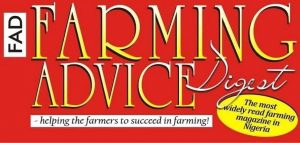HIGHER WELFARE ALTERNATIVES IN PIG FARMING
EXTENSIVE INDOOR SYSTEMS
In these systems, pigs are kept in groups on solid floors with straw or other material for bedding and rooting. The space allowance per pig is higher than for systems with slatted floors (e.g. 1.5m2 for a 90kg pig on straw compared to 0.65m2 on slats). Although there is no access outdoors, there is greater opportunity for natural behaviour and free movement, and aggression and the risk of tail biting are significantly reduced. In some systems, sows give birth in pens where they are able to perform nest building behaviour prior to farrowing and are better able to bond with their piglets.
Read also: How safe and secure is your pig unit
OUTDOOR BRED AND OUTDOOR REARED SYSTEMS
In these systems, breeding sows are kept in groups outdoors with straw-bedded tents or huts for shelter. Sows farrow in individual huts and paddocks. In ‘outdoor bred’ systems, the piglets are taken indoors and reared in extensive or intensive conditions from weaning at around 4 weeks of age. In ‘outdoor reared’ systems, this happens after half their life (defined as at least 30kg).
 Learn More
Learn MoreBreeding sows have a higher quality of life and are able to perform natural behaviours such as nest-building, rooting, wallowing and foraging on the range. The piglets benefit from the free-range conditions for part of their lives and it is common for them to be reared in higher welfare indoor systems once they are moved indoors for fattening.
To avoid potential confusion, the terms Outdoor Bred and Outdoor Reared must be accompanied by simple statements about the remainder of the production system. For example, Outdoor Reared and finished in straw-bedded barns.
Read also: Planning and construction of pig farm
FREE-RANGE AND ORGANIC SYSTEMS
In the best, free-range and organic systems, both sows and growing pigs are kept outside for most of their lives and some spend their entire life outdoors on pasture. Roughage, fodder or silage is added to the daily ration in organic systems. The piglets stay with their mothers for longer (up to six to eight weeks), mixing of unfamiliar pigs is reduced and tail docking is not practised (organic and some free-range).
Read also: Piglet management- birth to weaning
The pigs benefit from reduced weaning stress, increased space allowance and reduced social stress and conflict. Both sows and meat pigs have good opportunities for natural behaviour as described above.
For more information and updates join our WhatsApp group HERE
Like our page on Facebook HERE











